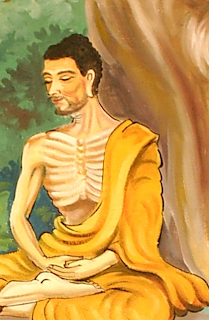(lyrics here)
When I read my old middle school diaries, the pages are filled with hopes of becoming part of the ‘popular’ crowd. I etched diagrams of how to assimilate myself into the cool lunch table, and kept lists of observations on the popular kids. I did not care which friends I made, as long as they could up my standing in social rank. Upon entering high school, I found myself some of the best friends I could ever have, and we changed and molded with each other. I felt most like myself when I was with my friends.
 My friends; I always believed that your friends are a reflection of who you are
My friends; I always believed that your friends are a reflection of who you areYet as the threat of college, and of them leaving me drew nearer, I found that I did not really know myself. Much like Siddhartha, “I was afraid of myself, I was fleeing from myself!” (Hesse 39) My friends had represented who I was, and I was proud of having them at my side, but with growing up came separation: they were going to be dispersed throughout the country, and I was to be left alone. As they slowly left me one by one, I felt “flight from [my] being” (Hesse 19); “I…lost myself in the process” (Hesse 39) and when I entered UT, I searched desperately for those scattered pieces of my previous self.
 Siddhartha sought to escape the pain and lies of the world
Siddhartha sought to escape the pain and lies of the worldI am willing to admit that the first semester of college for me was incredibly lonely. Despite being surrounded from friends and acquaintances from my high school and having my parents only fifteen minutes away, “the world tasted bitter.” (Hesse 16) I wanted nothing more than my best friends to come back and surround me like a protective shell.
This is where I can sympathize with Siddhartha, who also embarked in a search. He sought “freedom” (Hesse 39) and “no desire, no imitation, no attempts at being seen—only light and peace.” (Hesse 30) I interpret this peace to be a peace with oneself, which is what I sought, and what I am still seeking. It is here that I find that I relate to Buddhism the most out of all religions, because I feel as if I am also on the journey Siddhartha took. I am also looking for answers, truth, and peace.
 Our relationship with religion
Our relationship with religionNo matter which religion is “right”, I believe that all religions serve a common purpose: to provide hope and love in times of strife. We are like the frightened birds shivering in the cold, and religion “soothes with a touch the wild thing’s fright,/Composed its ruffled vans, calmed its quick heart,/Caressed it into peace with light kind palms.” (X240) Here is the idea of turning fear into love: in the darkest of times, a religion can offer the light that enables many people to get through their pain. Even though I do not consider myself particularly religious in the slightest, I can definitely sympathize and understand why people need religion: the knowledge of having someone or something that watches over you is very soothing, and gives people the hope they need.
Many of the upperclassmen I have talked to admitted that they were incredibly lonely in their first semesters of college. Even my mother told me that she felt the way I did upon entering college. There is comfort in knowing that I was not alone, and that these feelings are universal. Thus I understand the need for religion: people need a way to feel less alone.


No comments:
Post a Comment